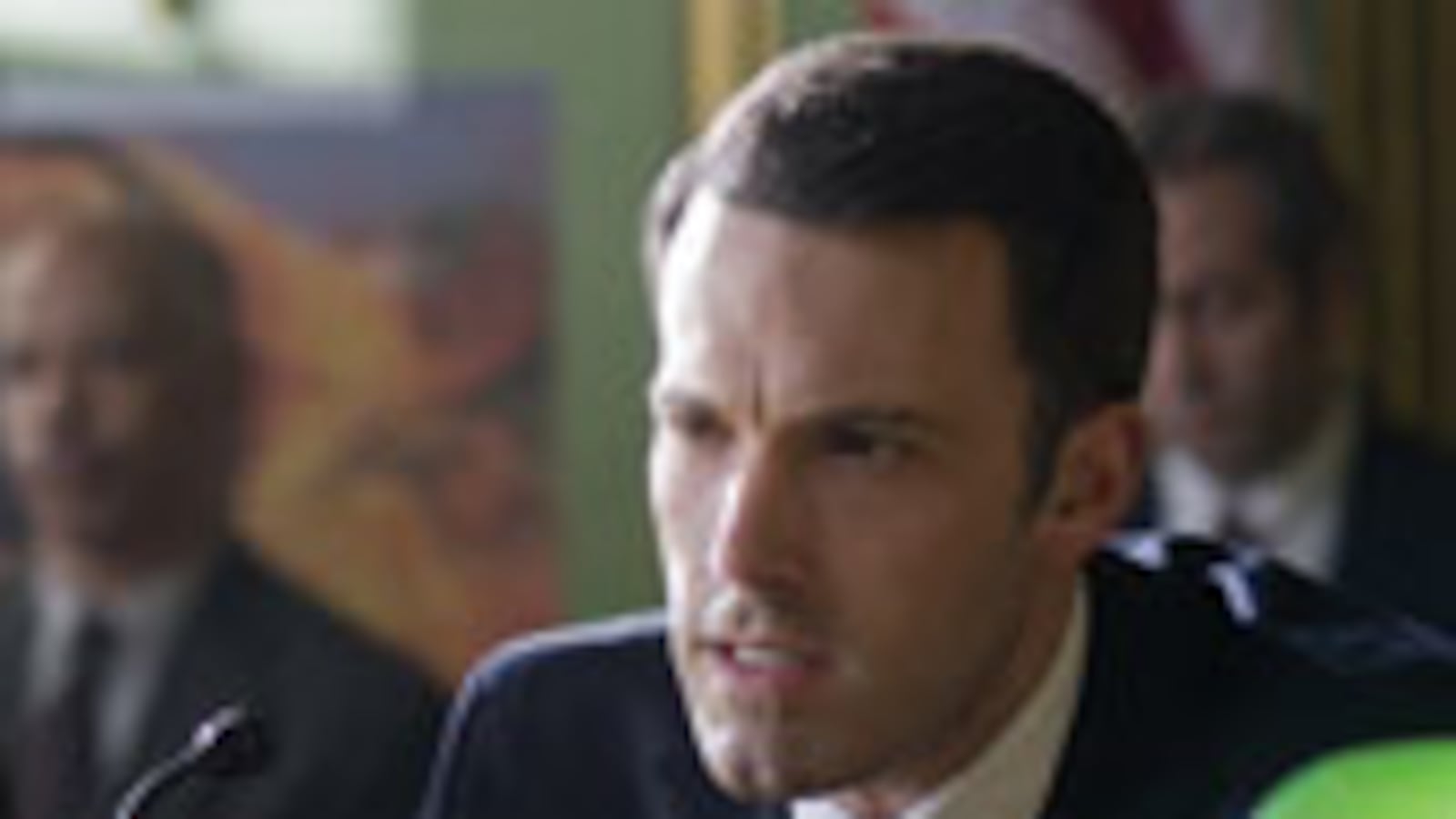
About six years ago, Ben Affleck and I were sitting on the set of his movie Daredevil and talking about his co-star Jennifer Garner. It was an innocent enough conversation because, at the time, for all we knew, Ben and Jennifer Lopez were about to make Benifer official—so it was just one Jennifer Garner fan to another talking about all things Garner.
“I don’t adhere to a lock-step adherence to a party. It’s like sports where just because you’re born somewhere you root for that team and I root for this. It’s important to care for the result.”
I suggested that she was about the nicest woman in Hollywood, and he agreed. Then we got temporarily cynical and collectively wondered how anybody could actually be so nice and when might the other shoe drop? We agreed that it probably wouldn’t and that, at least for Hollywood, Jennifer Garner was an anomaly.
These days, J-Lo stays in the tabloids on her own while Ben is happily married to Garner with two adorable kids. He has traded in the tabloids for the traditional (if you can still call it that) press and the headlines he is likely to get are not about whom he’s dating, but whom he’s helping. Affleck switched in large part from paparazzi to politics and is enjoying his role, at 36, as an elder Hollywood statesman, lending his movie-star name to causes that may never be neatly solved in his lifetime. Of this he says with Cary Grant confidence: “To whom much is given, much is expected.”
And what is expected from the actor Ben Affleck these days? Thoughtful movies with a message. (A far cry from that forgotten movie with J-Lo that rhymes with “really?”) So it is that Affleck stars along side Russell Crowe in the new thriller State of Play, in which he plays a congressman who does some “ugly things,” and goes up against Crowe, an old-fashioned blog-hating Washington journalist who without using Google once, figures out those ugly things. It’s a terrific ticket. And the first political movie since politics became all the rage again.
“The interest in Washington is up,” Affleck tells me. "I mean you have so many reasons: You’ve got Obama who’s been inspiring to people on the good end. I think people being in very tough shape all of a sudden, either out of work or their house value gone down—so they are worried about it or they are fearful of those things happening on the negative, so they are asking Washington: How you going to fix this? I think it’s a good thing in general. I don’t know what it means for the movie but I think it’s a good thing for the country.”
There have even been whispers that life might someday imitate art and that Affleck will actually put his famous name on a ballot, so this role seems curiously perfect for him. And since he didn’t have to do any fund-raising or eat bad food on the stump, the research was actually entertaining.
“Well, I went to meet with some of these guys and I thought they wouldn’t necessarily have a lot of time for me because obviously they were legislating and voting and working,” he says of the preparation. “But in fact they were very interested in telling me how things work because they wanted things to be communicated accurately because people have a perception of Washington that is highly negative and one that’s not necessarily accurate—outside of my character, who does some ugly things. But I wanted to show that [Washington is] a place where serious work is getting done and the people are working hard and are very smart —I wanted to get that across.”
We’re sitting at the Four Seasons Hotel in Beverly Hills on a picture-perfect Southern California day and collectively considering how the Washington elite will adapt to being the new celebrities. With TMZ asking congressmen if they Twitter, I wondered where this trend would lead us as our elected officials try to lead us.
“Whether it’s good or whether it's bad—that’s what the movie wants to look at—what’s the appropriate relationship between the media and the government and what affect one has on the other. You have these two institutions that are somewhat corrupt and have a symbiotic relationship that’s also at odds. And how that’s managed is really interesting.”
Aside from his family and movies, Affleck’s current passion is Africa. And he’s doing what he can to “ameliorate some of the humanitarian crisis there.” He’s gone on fact-finding missions (sometimes under the radar) to add his celebrity voice and bring awareness.
“All those things are interesting to me and moving to me,” he says, “and are things I can do in a little way to try repay some of the good fortune that has been given to me. It’s an effort to try to do something supportive and meaningful in the world.”
Still, he knows it’s not easy. And with the world in such turmoil, trying to keep an eye on the atrocities in Sudan requires genuine focus. “I think it’s difficult for people to empathize with or identify with something that really is far away and they imagine the scope of what’s happening is really outside our ability to internalize.
“When we get involved with huge numbers of death and giant crises we tend to turn off. It doesn’t mean that we’re bad people—it says something about just the way the brain functions. I think sometimes people feel it’s hopeless. I think they think ‘I don’t know what to do about this—I can’t do anything about this—it's too big, it’s terrible.’”
A parallel issue that burns deep in the Congo and Sudan and most every other place in Africa is violence against women. And so Affleck is working with organizations like Vital Voices to put this historical nightmare into the conversation:
“In some parts of Eastern Congo, two out of every three women have been raped. It’s an acute crisis of gender-based violence there. The first thing that needs to happen is for people to become aware of it and the second thing is to look at the root cause, which is the lack of a security sector…to recognize that this is symptomatic of a deeper issue and to try to get people to pay attention to some of the larger ways to fix it is a goal. These are really large and difficult problems and they resist small, quick fixes.
“We live in a culture that wants to go click on something and find the answer. Click on the next thing and find the answer. We’re not as good at long-term commitment to things. Violence against women is a big issue and a big problem and in large part it has to do with an attitude of a sense of permissiveness … that this is something that is acceptable. I think education and tolerance is a big part of the solution.”
And for Affleck, that education begins at home. What will he tell his kids about what we can expect from our leaders as we navigate the rapids of world problems?
“It’s good to have a critical if not a jaundiced eye when looking at Washington all the time,” he says. “I don’t adhere to a lock-step adherence to a party. If your guys are in a party, we’ll work with them. If not I’ll go somewhere else. It’s like sports where just because you’re born somewhere you root for that team and I root for this. It’s important to care for the result…what comes out of Washington. To push, to be active and also to care.”
So that begs the question. Will Ben Affleck ever run for public office?
“Only if I can run behind you.”
That, I gather, was a no.
Pat O'Brien has been a broadcaster for more than three decades, including many years as the co-host of Access Hollywood and The Insider. A former anchor for CBS Sports, he is also the author of Talkin' Sports: A B.S.-er's Guide. He divides his time among Los Angeles, New York, and Nantucket.





